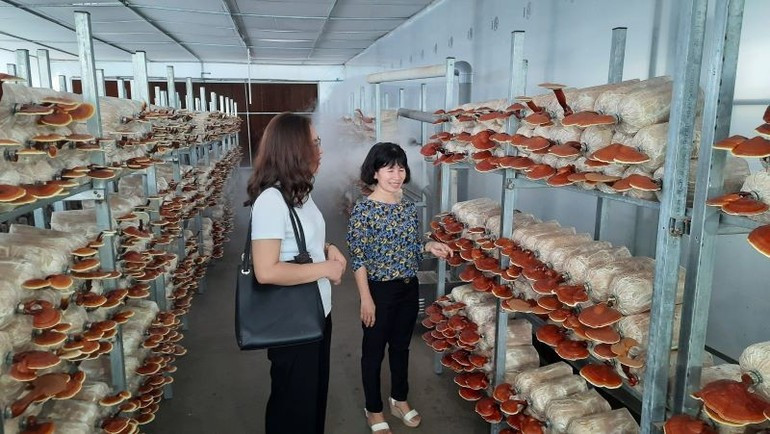Ho Chi Minh City farmers promote digital transformation in agriculture
Unlike traditional agricultural practices, Ho Chi Minh City farmers have applied scientific and technological advances to production, with a particular focus on advancing digital transformation in agriculture, gradually building high-tech agriculture and modern urban agriculture.

As digital transformation progresses across all sectors, agriculture has emerged as a heavily invsted field, with expectations that digital transformation will lay the groundwork for sustainable efficiency in Ho Chi Minh City’s agricultural sector.
Pioneer in digital transformation
To improve productivity and quality, Tuan Ngoc Agricultural Cooperative in Long Truong Ward, Ho Chi Minh City, has proactively pioneered the application of digital technology to vegetable production processes using hydroponic methods.
Lam Ngoc Tuan, Chairman of the Board of Directors and Director of the Tuan Ngoc Agricultural Cooperative, shared that the cooperative not only focuses on innovation in management technology but also integrates the principles of circular agriculture to ensure sustainable development.
By reusing resources such as coconut coir substrates from hydroponic production, the cooperative has helped increase ecological efficiency and reduce agricultural waste.
Through the combination of digital transformation and circular agriculture, Tuan Ngoc Agricultural Cooperative is establishing a model of sustainable agricultural production in Ho Chi Minh City, making significant contributions to economic development and environmental protection.
To meet increasingly strict market demands, the cooperative has recently accelerated its digital transformation efforts to optimise production processes, improve product quality, and more effectively respond to market demands.
Specifically, the cooperative has applied automation technology in production by integrating Internet of Things (IoT) sensor systems into its hydroponic vegetable farming model.
These sensors continuously monitor and record important parameters such as humidity, temperature, light, and nutrient concentration in water. The data is collected and analysed automatically to support timely adjustments to ensure an optimal growing environment.
Additionally, the Tuan Ngoc Agricultural Cooperative also uses management software to monitor the entire production process, from seeding to harvesting and distribution.
This helps optimise resources, reduce waste, and increase productivity. Products are labelled with QR codes, allowing consumers to quickly and transparently trace their origins.
According to Tuan, consumers are increasingly concerned with clean agricultural products and traceability. This has encouraged the cooperative to invest in digitalising its supply chain, thereby enhancing transparency in the production process and increasing consumers’ trust.
Supporting farmers in digital transformation
Digital transformation presents an opportunity for Ho Chi Minh City to shift from small-scale, inefficient production models lacking value chain linkages to a data-driven and transparent agricultural sector.

This shift brings new and sustainable value to agricultural production by reducing costs and enabling higher product prices.
Le Minh Dung, former Chairman of the Ho Chi Minh City Farmers' Union, said that for digital transformation to succeed, farmers must act as both pioneers and the foundation agricultural change.
Ho Chi Minh City has set goals for digital transformation in agriculture, including developing a model to support key agricultural programmes, with a focus on restructuring and promoting agricultural transformation.
These efforts support the city’s implementation of the economic structural transformation programme, transforming the agricultural growth model, and building a high-tech, modern agriculture.
The Ho Chi Minh City Farmers' Union has implemented measures to support farmers in adopting digital transformation, applying advanced technologies, and developing linkage and value chains in agricultural production and consumption, transitioning from traditional agricultural production to digital agricultural economy.
At the same time, the has also organised more than 30 training courses on digital transformation, product promotion, and consumption for its members and farmers, along with basic sales skills and digital account creation on social media and e-commerce platforms.
Furthermore, the Ho Chi Minh City Farmers' Union has worked with relevant agencies to implement more than 80 agricultural performance models applying good agricultural practices (GAP), implementing agricultural extension policies, encouraging the development of models of organic agriculture, high-tech agriculture, and digital agriculture for farmers in the city.








